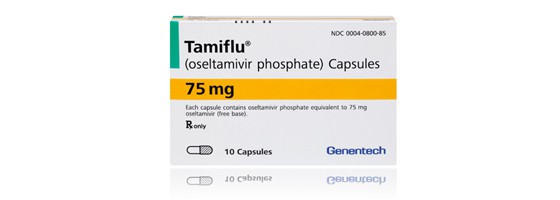Roche has produced promising phase 3 data for its first-in-class influenza treatment in patients who are at a high risk for complications.
Baloxavir marboxil is a single-dose, investigational oral medicine, and has just achieved its primary endpoint in the CAPSTONE-2 trial comparing it with placebo and Tamiflu.
Tamiflu was a multi-billion dollar earner just a few years ago, but generic versions have now flooded onto the market.
The new treatment could be an advance on Tamiflu, showing efficacy in high risk groups where the older drug had not. Additionally, the candidate also comes in the form of a single pill, unlike Tamiflu, which needs to be administered twice a day for five days.
The CAPSTONE-2 trial showed that baloxavir marboxil significantly reduced time in improvement of influenza symptoms versus placebo in people at high risk of serious complications from flu, which included adults 65 years of age or older, or those who have conditions such as asthma, chronic lung disease, morbid obesity, or heart disease.

The pipeline drug will have to significantly outperform the now generic Tamiflu to gain traction
The new data comes just ahead of the FDA’s expected ruling on the drug, which is scheduled for 24 December. If approved, baloxavir marboxil will be the first single-dose oral antiviral, and the first medicine with a novel proposed mechanism of action to treat flu in nearly 20 years.
Discovered and developed by Shionogi, the drug is already approved in Japan and marketed as Xofluza, with Roche holding the marketing rights outside Japan and Taiwan.
Baloxavir is the first in a new class of antivirals designed to inhibit the cap-dependent endonuclease protein within the influenza virus, preventing the virus from replicating in the body early in its lifecycle.
The phase 3 CAPSTONE-2 study showed baloxavir cut the median time of improvement to 73.2 hours versus 102.3 hours in patients on placebo.
The trial also showed the drug was well-tolerated and no new safety signals were identified, and these results will be presented as a late-breaking oral presentation during IDWeek 2018 in San Francisco, CA on Saturday 6 October 2018.
The drug is also to be studied in a phase 3 programme including paediatric patients and severely ill hospitalised patients with influenza.
Analysts say the new treatment will have to generate more evidence of significant benefits in these high risk groups in order for healthcare systems to switch away from generic oseltamivir.
Roche is in need of a new set of innovative products, as its older generation of blockbusters, Avastin, Herceptin and MabThera/Rituxan come under competition from biosimilars.




